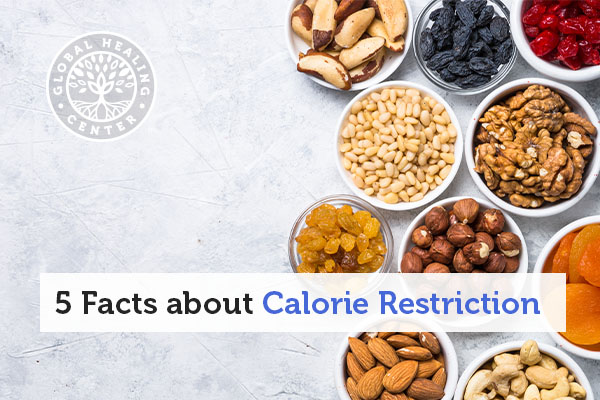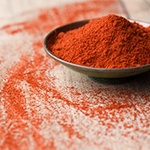
Calorie restriction is defined as a reduction of 30-60% of one’s regular calorie intake while maintaining a diet that provides enough nutrients to prevent malnutrition. Scientists believe calorie restriction stimulates a defensive state designed to help an organism survive environmental and metabolic adversity. This non-genetic strategy has been observed to encourage youthfulness and extend average and maximum lifespan in most living creatures. [1]
Why Caloric Restriction?
Many individuals choose to pursue the approach of calorie restriction for its supposed anti-aging effects. Calorie restriction has been shown to extend longevity in animal models via a number of proposed metabolic avenues. Whether it’s activating sirtuin production, protecting telomere length, or reducing oxidative stress, safe calorie restriction with optimal nutrition (CRON) may be a helpful way to support a healthy aging process. Calorie restriction is by no means the end all and be all of longevity, but it is a good first start that is free to try.
How Does it Work?
The precise mechanisms as to how calorie restriction works are not yet known. Despite the lack of understanding by modern science, there are some clues as to how CRON benefits the body. Researchers hypothesize caloric restriction lowers metabolism, decreasing the oxidation often associated with metabolic processes. Calorie restriction, or CR, also decreases insulin levels and stimulates cell repair. Sirtuins, proteins that regulate many biological pathways, are activated during calorie restriction, and studies show that these proteins may extend lifespan. Whatever the mechanism, it does reduce the body’s production of reactive oxygen species (ROS) which reduces damage to DNA.
Potential Benefits
So, you may know that calorie restriction plays a role in supporting a healthy aging process, but did you know that the practice offers specific approaches to health? Here are some of the top researched benefits of CR.
Decreases Risk of Heart Disease
Caloric restriction shows positive effects on many of the causes associated with heart disease. Studies have found it helps protect against obesity and hypertension, health conditions that greatly influence heart disease risk. [2] Adiponectin, a hormone that increases production under physical stressors (including that of caloric restriction) promotes cardiovascular and metabolic health. [3] Only a subset of heart disease patients should consider calorie restriction alongside professional medical advice.
Encourages Weight Loss
A study of overweight, postmenopausal women found all participants experienced significant decreases in body weight and body mass index following a calorie restricted meal plan. Some participants experienced better blood sugar management as a result of the caloric restricted diet. [4] While this may be good news for type II diabetics, those suffering from blood sugar issues should make sure they are receiving the proper nutrients that further stabilize blood sugar spikes.
Promotes Healthy Cellular Function
Individuals who practice long-term caloric restriction for the purpose of supporting health and longevity have shown a lower risk of cellular dysfunction. [5] This doesn’t necessarily mean that calorie restriction can solve the cancer issue, but it just may be an important approach to supporting health on all fronts. [6]
One Final Thought
Extreme examples of creatures experiencing caloric restriction have shown 40-60% increases in lifespan. Although human studies began over a decade ago, the same anti-aging biomarkers observed in dogs, mice, and yeast have been triggered in humans as well. So far, caloric restriction appears to be an effective, affordable, and somewhat simple approach for combating the aging process.
Despite how easy it may sound, CR does require a certain level of discipline. Calorie intake must be decreased while proper nutrition maintained. This can be accomplished by tracking your food intake with a nutritional analysis program. Men should also know that caloric restriction reduces testosterone levels to a degree. It’s not an approach recommended for the young or anyone concerned with fertility, and CR should definitely not be practiced by pregnant women or those with a history of disordered eating. It is always best to speak to a doctor and even a holistic nutritionist or dietitian before embarking on this lifestyle.
Are you practicing caloric restriction? Please share your experiences and health benefits you enjoy!
References (6)
- Anderson RM1, Shanmuganayagam D, Weindruch R. Caloric restriction and aging: studies in mice and monkeys. Toxicol Pathol. 2009 Jan;37(1):47-51. doi: 10.1177/0192623308329476.
- Weiss EP1, Fontana L. Caloric restriction: powerful protection for the aging heart and vasculature. Am J Physiol Heart Circ Physiol. 2011 Oct;301(4):H1205-19. doi: 10.1152/ajpheart.00685.2011.
- Cawthorn WP1, Scheller EL2, Learman BS2, et al. Bone marrow adipose tissue is an endocrine organ that contributes to increased circulating adiponectin during caloric restriction. Cell Metab. 2014 Aug 5;20(2):368-75. doi: 10.1016/j.cmet.2014.06.003.
- Myette-Ct E1, Doucet E, Prud'homme D, et al. Changes in glucose disposal after a caloric restriction-induced weight loss program in obese postmenopausal women: characteristics of positive and negative responders in a Montreal-Ottawa New Emerging Team study. Menopause. 2014 Jun 23.
- Omodei D1, Fontana L. Calorie restriction and prevention of age-associated chronic disease. FEBS Lett. 2011 Jun 6;585(11):1537-42. doi: 10.1016/j.febslet.2011.03.015.
- Jin L1, Lim M, Zhao S. The metastatic potential of triple-negative breast cancer is decreased via caloric restriction-mediated reduction of the miR-17~92 cluster. Breast Cancer Res Treat. 2014 Jul;146(1):41-50. doi: 10.1007/s10549-014-2978-7.
†Results may vary. Information and statements made are for education purposes and are not intended to replace the advice of your doctor. If you have a severe medical condition or health concern, see your physician.







